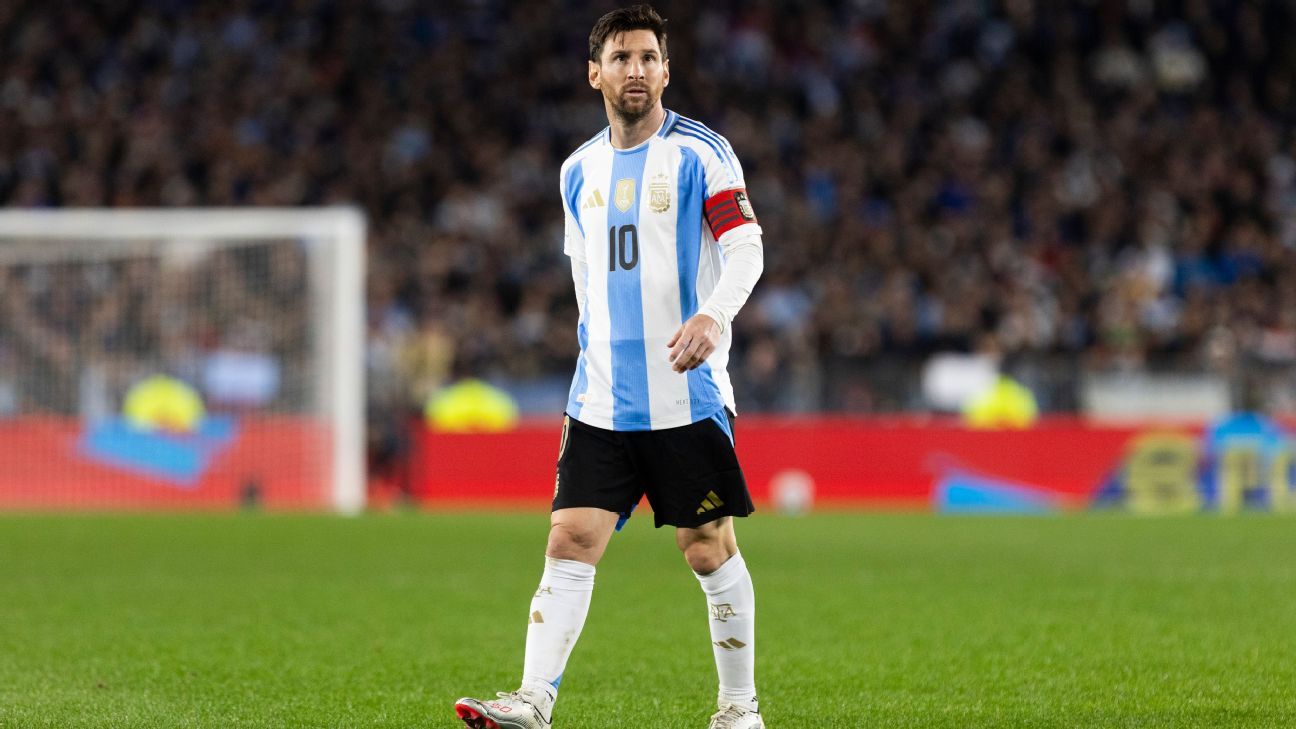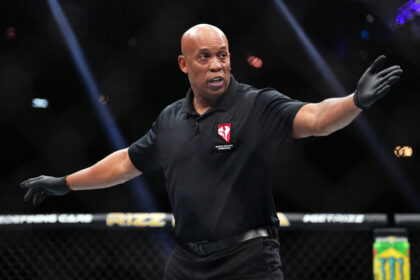As Lionel Messi approaches the final chapter of his illustrious career, one pressing question looms: Can he lead Argentina to another triumph at the 2026 FIFA World Cup?
At 38 years old, Messi’s pull remains strong with Inter Miami in MLS, though the weekly competition doesn’t quite match the intensity of international play. His participation in the FIFA Club World Cup offered a chance to assess how he measures up against elite defenders, providing insights into his potential impact on the Argentine national team in the upcoming tournament.
ESPN’s Lizzy Becherano and Tim Vickery analyze Messi’s evolving role and how both Miami and Argentina are strategizing to maximize his contributions for next year’s competition.
Messi’s Development at the Club Level
After making his debut for Barcelona on October 16, 2004, and scoring his inaugural goal with Ronaldinho’s assist, Messi quickly shattered records while transforming the landscape of football.
In a 2007 match against Espanyol, Messi dazzled fans by maneuvering through defenders to score, showcasing skills that defied expectations of a conventional right winger. Under Pep Guardiola’s management, his role evolved into a “false 9,” fully exploiting his distinctive talent.
His remarkable abilities at Barcelona didn’t initially translate to immediate success for the national team, but everything shifted with manager Lionel Scaloni at the helm. Now, rather than relying solely on Messi, Argentina developed a supportive system that allows him to shine in pivotal moments.
Currently, at age 38, Messi’s style has matured, yet he still retains the capacity to influence matches.
Inter Miami continues to harness his talent strategically, avoiding excessive physical toll. The MLS season consists of 34 games, with opportunities for playoff action if the team qualifies, alongside engagements in the CONCACAF Champions Cup, FIFA Club World Cup, and the League Cup starting this July.
While facing regular competition in MLS, the Club World Cup presented a unique challenge, allowing Messi to test himself against top-tier defenders reminiscent of what he may encounter during World Cup knockout rounds.
Miami’s head coach, Javier Mascherano, carefully manages Messi’s playing time and occasionally permits him to rest during less critical MLS matches. Messi has adapted his playing style to maximize field impact while conserving energy for key moments.
Though his skills remain, how Messi utilizes them has evolved. He now focuses more on precise game reading to deliver precise assists and find scoring opportunities in tight spaces. His movements may appear less frequent but remain just as effective.
Statistically, Messi’s performance metrics remain noteworthy. In the Club World Cup, he averaged 5.5 meters per carry, aligned with his last European season performance. While his dribbling attempts have decreased, his efficiency and decision-making remain strong.
During matches, even when experiencing discomfort, Messi demonstrates remarkable proficiency, as seen when he scored a pivotal goal against Porto in the Club World Cup despite challenges.
His commitment to the game is admirable, with Mascherano highlighting Messi’s unwavering drive, even in trying moments.
Although injuries may have affected his effectiveness in certain instances, Messi showcased glimpses of brilliance during his time against PSG, where his finesse and playmaking skills remained evident, despite enduring a tough defeat.
The Evolution of Messi with Argentina
What does the future hold for this remarkable journey? Following a disappointing 4-0 defeat to PSG, uncertainty surrounds whether Messi will participate in the next World Cup.
Despite doubts regarding an aging athlete, the landscape of Messi’s career continuously shifts, showing signs of adaptation despite challenges posed by time. His impact on the pitch remains tangible, as he orchestrates plays and accelerates towards goals.
Under Scaloni’s leadership, Argentina might continue to structure the team in ways that enable Messi to be effective, replicating the successful synergy they built previously. After assuming the role of coach, Scaloni introduced an ambitious style that echoes the tactical innovation of top teams, allowing Messi to thrive.
Despite a rocky start in 2019, their progress solidified Messi’s evolution into a vocal leader, helping to unify the team. Argentina’s recent outings reflected adaptations that benefited the squad even in Messi’s absence, indicating growth in team dynamics.
As Messi celebrates his victory at the Copa America in 2021 and the Qatar World Cup triumph, the bond between him and the team has only strengthened. Efforts to restructure the team around him have raised questions about future sacrifices.
Although doubts linger regarding Messi’s ability to dominate at his peak, the Argentine squad is built around shared responsibilities, suggesting that even as his role shifts, collective ambitions remain intact.
The next phase of Messi’s career looms large, as Argentina embraces the notion that their success is a reflection of shared ambition, preparing them for potential glory as they aim for victory on the global stage.
Fan Take: For soccer enthusiasts, Messi’s journey sparks hope and excitement regarding his potential to lead Argentina again on the world stage. His ongoing evolution within the sport emphasizes the significance of adaptability, a quality that fans and players alike can learn from, ensuring the beautiful game remains ever vibrant.



